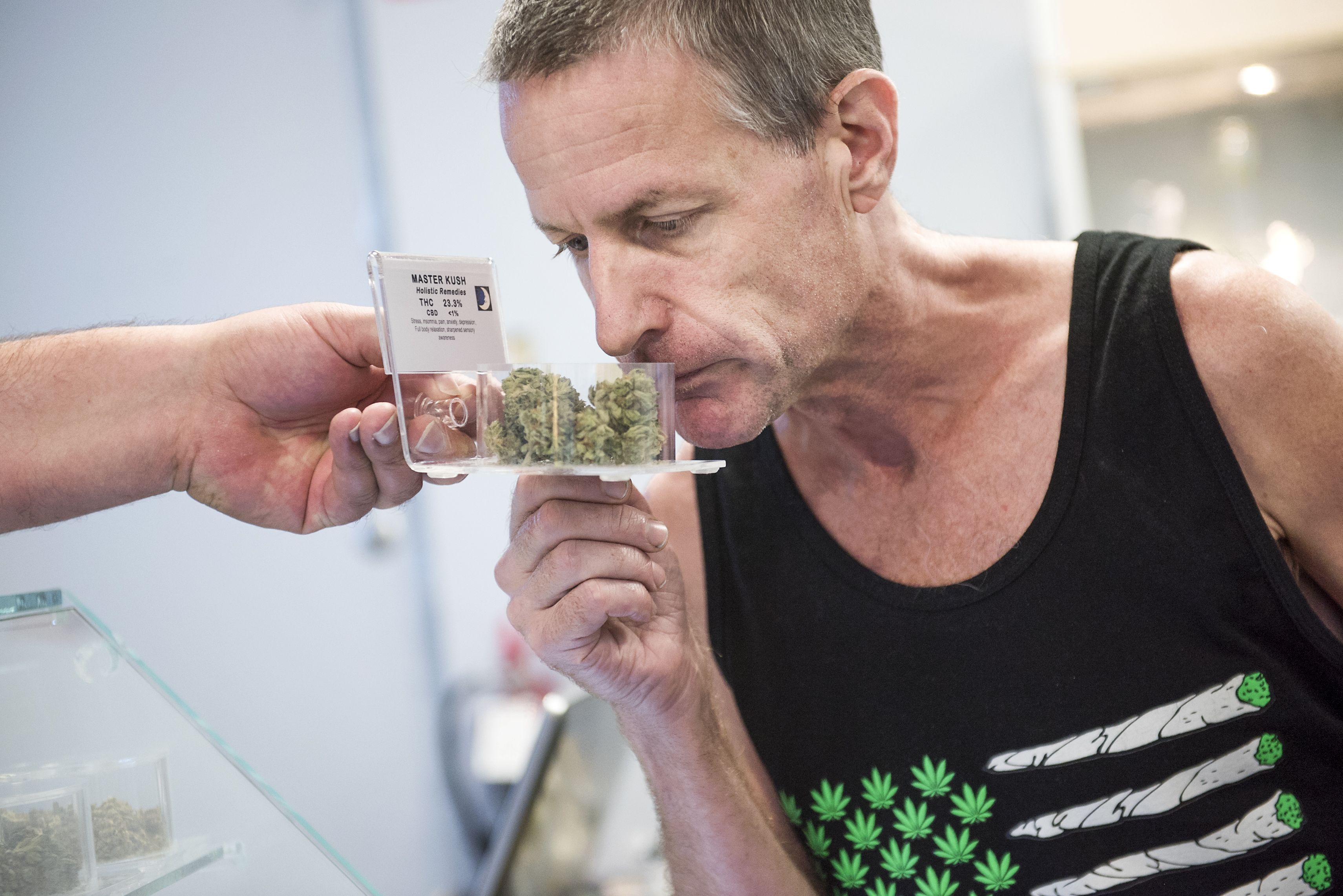BUSINESS NEWS
Marijuana use among baby boomers rose tenfold over decade as seniors seek out pot for medical treatment
[ad_1]
A customer of the medical marijuana dispensary Takoma Wellness Center in Takoma Park, is shown inventory, August 30, 2016.
Tom Williams | CQ-Roll Call Group | Getty Images
Marijuana use among seniors in the U.S. rose tenfold over a decade as more baby boomers use it to treat a range of ailments, including pain, anxiety and depression, according to a University of Colorado study.
Some 3.7% of U.S. adults aged 65 or older used cannabis in the past year, a more than ten-fold increase from 0.3% in 2007, data from the National Survey of Drug Use and Health showed. In 2017, 9.4% of adults between the ages of 60 and 64 reported using marijuana in the past year, up from 1.9% ten years prior.
As more states begin to legalize medical and recreational cannabis, the number of older Americans using the drug is expected to rise, said Dr. Hillary Lum, assistant professor at the University of Colorado School of Medicine and co-author of a study published last month in the journal “Drugs and Aging” that examined pot use among Americans over age 60.
Recreational marijuana use is legal in 11 states and Washington D.C., while medical marijuana is legal in 33 states. Even so, many older Americans, are having trouble finding medical marijuana, Lum said.
Lum’s research team surveyed 136 people who were over 60 years old at Colorado senior centers, health clinics and cannabis dispensaries in 2017. Many study participants said they had problems accessing medical cannabis, adding that there was a lack of education among physicians when it comes to treating ailments with marijuana. Some of the study’s participants didn’t ask their doctors about it because of the negative stigma.
The participants said doctors should work to learn more about medical marijuana, including dosage, method of usage and potential benefits or risks older adults face when using the drug. Some told the researchers their primary care doctors were either unable or unwilling to approve them for a medical marijuana card, which would allow them to purchase the drug at a medical dispensary.
“I think they should be a lot more open to learning about it and discussing it with their patients,” one study participant said. “Because at this point I have told my primary care I was using [marijuana] on my shoulder. And that was the end of the conversation. He didn’t want to know why, he didn’t want to know about effects, didn’t want to know about side effects, didn’t want to know anything.”
Many study participants said they chose to instead purchase their marijuana from recreational dispensaries, which often cost more, because of a reluctance to ask their doctors for a medical marijuana card or because they would have to leave their health insurance network to find another provider that would give them a card.
The University of Colorado study comes as a number of researchers look into the impact marijuana may have on certain health issues, including obsessive compulsive disorder, cancer and ADHD. However, Lum said there’s still research that needs to be done on cannabis as a medical treatment.
More than 100 study participants mentioned the access process and barriers to getting a medical marijuana card. Lum said to increase physician awareness about medical cannabis, there needs to be more research done on the risks, benefits and challenges of marijuana use in older adults, “especially those who may be on other medications that could have interactions or other health conditions that could have interactions with their marijuana use.”
Once that research has been completed, Lum said that’s when the evidence can be brought to practice and health care providers will be more comfortable having discussions about medical cannabis.
“I feel doctors may not want to worsen stigma, but instead want to have really trust-based decisions and discussions and that takes time and training,” Lum said.
[ad_2]
Source link











